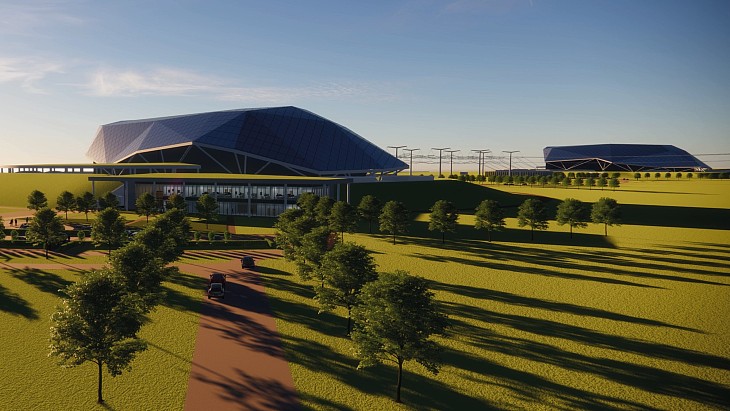BRR is one of the oldest and most powerful research reactors in Central Europe. It is a VVR-type (water-cooled, water-moderated) Soviet-designed reactor. It went critical in 1959, and has since been upgraded and modernised several times. Since the reactor started up, the facility has been running on fuel produced by Novosibirsk Chemical Concentrates Plant, a TVEL enterprise. From 2012, the reactor core has been entirely loaded with only low-enriched fuel assemblies.
The reactor is used for scientific and applied research in nuclear physics and material studies, in particular, for the purpose of developing nuclear power in Hungary. As the major research facility of Budapest Neutron Centre, BRR is used for studying the properties of reactor materials and nuclear fuel cycle.
The Centre for Energy Research plays a significant part in supporting operations of Paks, Hungary's sole nuclear power plant which provides about 50% of the country's electricity generation. This includes, in particular, fields such as the study of radiation ageing of reactor structural materials, used fuel and radioactive waste management, closing the nuclear fuel cycle, reactor physics, and the thermomechanical behaviour of nuclear fuel.
"TVEL is proud of the long-time successful cooperation with Hungary's nuclear power industry and nuclear science in a number of fields. Budapest research reactor has a special place in the history of our relations - this installation has already operated on Russian nuclear fuel for more than 60 years," said Oleg Grigoriyev, senior vice-president for commerce and international business at TVEL. "Meanwhile, the first unit of Paks NPP was commissioned 38 years ago. The launch of this reactor had a crucial role in development of Hungary's strong traditions in nuclear physics, which is important for a country with a well-developed nuclear power."

.jpg)



_19544_40999.jpg)


_66668.jpg)





